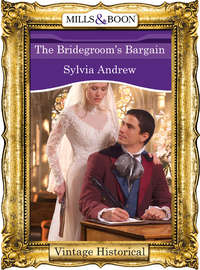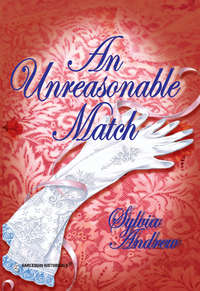
Полная версия
Regency High Society Vol 2: Sparhawk's Lady / The Earl's Intended Wife / Lord Calthorpe's Promise / The Society Catch
“You mustn’t blame Captain Sparhawk, Lady John,” she said, speaking up before her courage faltered. “All of this, from the very first, has been my doing.”
“Here now, Caro, no more of this Lady This-and-That,” said Jeremiah sternly. “No more ‘Captain,’ either. If you felt free enough to call me your darling Jeremiah last night before a score of witnesses, why then, you can do it again when it’s just us—though you’d best leave off with the ‘darling’ for your poor true husband’s sake. And my sister’s Desire, nothing more or less.”
Twisting her bonnet strings uncertainly, Caro looked to the other woman for reassurance.
“‘Tis well enough with me,” said Desire with a little shrug. “Though you’re the countess, wife to a peer, and by rights we should be deferring to you instead.”
Caro shook her head vigorously. “I’ll do whatever you wish, Lad—Desire.” She blushed self-consciously at the intimacy of the given name. Titles still intimidated her, it had taken her two years of marriage before she’d been bold enough to call her husband Frederick instead of Lord Byfield. “But as for all the rest—”
“I’ll tell her, Caro.” And tell her Jeremiah did, in a far different version than Caro would have dared tell, herself. There was no mention of the kiss in his chamber in this very house, not a word of the undignified scrambling through the Yellow Room at Blackstone, and nothing at all of the two sailors who’d attacked them in the street or the awful scene in the stable. Instead he spoke of how badly George had treated her and how important it was that she find Frederick and his crew mates. Caro listened, bewildered. Was he only protecting himself, or did he care enough to shield her too?
“I had no choice but to bring her back here with me, Des,” he argued. “If she goes back home, Stanhope will only cart her off again.”
“Just the way you did,” said Desire, her voice brittle as she glanced at Caro. “I’m sure you realize that that ship bound for Jamaica cleared this morning with the tide.”
“Desire,” said Jeremiah, the warning in his voice clear, “don’t.”
But though he hoped to spare Caro’s feelings, she wasn’t listening any longer. Instead she was staring intently at Desire’s belly, a look of wonder on her face.
“Your baby just moved, didn’t it?” she asked softly. “I saw it stir through the muslin of your gown.”
Desire nodded, her brows raised with surprise at such a question from a woman she barely knew. “He’s always running races this time of day. Preparing himself for tea, I suppose.”
“You know it’s a boy?” Desire leaned a little closer, eager for information on a subject on which she was abysmally ignorant. Frederick was an educated man who had taught her many things, but there were definite gaps in his learning.
Desire smiled for the first time since she’d met Caro. “Only as much as any mother does. But this child moves so much like my son did that I cannot help but believe it’s a boy, too.” She reached out for Caro’s hand and placed it on her belly. “There! That was a good kick, wasn’t it?”
Caro gasped. “I did not know a baby could be so—so lively!”
Desire laughed. “‘Tis nothing compared to what they do once they’re born. My son Johnny was born on board a frigate, and you’ve never seen a child wriggle and squeal with delight as he did every time they beat to quarters. But then, you know how boys love drums, even tiny baby boys.”
“Well, no, I don’t really.” With obvious reluctance Caro lifted her hand, though she kept her fingers spread as if still feeling the baby beneath them. “I have no brothers.”
“No children of your own?”
“None.” Deliberately Caro closed her hand, drawing her fingers up tight. “My husband and I have never been blessed.”
“You may still be,” said Desire. “You’re still a young woman, and with men age never seems to make a difference. Lord Byfield may yet see the day when he’ll embrace an heir other than George Stanhope.”
But Caro shook her head, sorrow clouding her face. “I’ve spent more than half my life with Lord Byfield, and if there’s no heir by now—no, it won’t happen.”
“I’m sorry, Caro.” Tears of sympathy welled up in Desire’s eyes. “I didn’t mean to make you sad.”
But Caro shook her head again, this time with a fierce determination that the other woman never expected. “You mustn’t pity me, or judge my life empty. I may not have children, but I do have Frederick’s love, and he has mine. For me that is more than enough.”
“You love your husband that much?”
Caro’s chin inched higher. “That much, and more.”
“So it is with me and my Jack,” said Desire softly, her hands cradling her unborn child. “I’ll pray for your husband’s deliverance, and rejoice in your happiness when he returns to you.”
Yet Desire’s expression was anything but happy as she turned back to her brother, standing these past minutes as a silent witness to the women’s conversation, his face shuttered and his thoughts his own. Gently she touched his sleeve. “That’s your answer, too, isn’t it, Jere?”
He cocked his head and frowned. “Meaning?”
Desire took a deep breath. “Meaning that you intend to sail for Naples on this lady’s behalf, and nothing George Stanhope or Hamil Al-Ameer or I can say or do will make you change your mind. Not that I’ll be foolish enough—or selfish enough—to try again.”
In that moment he realized she knew everything: what had happened on the Chanticleer, his failure to save his ship and crew, the fears that haunted him still. She knew, and she understood why he couldn’t turn his back on the one chance he would have to find peace with himself. What was it she’d said about Jack? That she loved him enough to let him leave? Not that he’d ever doubted the bond between them, but now he realized how strong a woman his little sister had become.
“You’re wrong, sister mine,” he teased with more tenderness than he knew. “I’ve no intention in the least of acting on this lady’s behalf.”
Caro’s heart plummeted. Though he’d said nothing to her of his plans on the long ride from Portsmouth, she had assumed that he’d agree, or else he would have left her behind. Instead he meant to abandon her here, now, crushing her last fragile hopes forever. For what must be the final time she looked at him, the tall, handsome man she’d believed would be her champion.
But to her confusion, he met her gaze and grinned. “I’ve never done anything in anyone else’s name, Desire,” he said, “and I’m not about to begin now. If the lady wishes me to sail to Naples, why then, she’d damned well better be coming with me.”
Thomas Perkins sat back in his leather-covered chair and pursed his lips with displeasure. He had put off seeing this particular gentleman as long as he could, hoping that perhaps he would leave the offices on his own, but here it was nearly dusk and still the man had insisted. Clearing his throat, Perkins drew off his spectacles and lay them in the exact center of the packet of papers on the desk before he answered the gentleman who sat opposite him.
“I don’t believe I can accommodate you, sir,” said the lawyer in the careful, clipped speech that had served him so well in the courts. “I don’t understand how such gutterborn gossip can have any relevance at all to the well-being of my client.”
“What’s gutter-born is your client, Perkins,” said George Stanhope sharply. “Her current behavior is absolutely no better than anyone can expect.”
“Her ladyship’s behavior both past and present has never been anything less than exemplary, Mr. Stanhope. I pay no heed to rumor, sir, and instead make my judgments on my own knowledge. And I know, sir, that Lady Byfield is incapable of the activities of which you charge her, just as I know she has gone visiting friends, as her butler told me last Thursday, when these rumors first surfaced.”
George struck his fist on the edge of the desk. “Then she’s tricked you, too, just as she tricked my uncle! She winks once and shows her dimples, and you old men turn into blathering fools. You know she’s taken young lovers for years. She’s even made overtures to me—told me what she’d do with me if we was ever alone, bold as brass. Like mother, like daughter, they say. She’s probably given my uncle more horns than a ten-point buck.”
“You go too far, sir.” Perkins realigned his spectacles a fraction more to the left. “I have told you before, Mr. Stanhope, that I’ve no wish to discuss her ladyship with you. Now if you will excuse me—”
“No I will not, Perkins! Dash it all, how can you defend the creature? She has run off with a common thief, the very man who robbed us both on the road! They’ll hang him when they catch him, and God help her if she’s with him when he’s taken.”
“But I thought you’d said earlier that her ladyship had been kidnapped by this ruffian, that you were waiting on tenterhooks for his ransom note?” Though Perkins’s expression didn’t change, he did allow a breath of irony to creep into his voice. “You’ve been quite thorough in that, haven’t you, Mr. Stanhope? The warrant, the handbills, the whispered story that’s nearly as common as the one about the French war.”
Flustered, George eased a finger around the edge of his fashionably high neckcloth. “You must have misunderstood, Perkins,” he said weakly. “Misheard it all, eh?”
But Perkins continued as if George hadn’t spoken. “So thorough, in fact, sir, that I almost suspect the entire escapade to be of your own invention.”
George dropped back into his chair, rubbing the thumbnail he’d earlier bitten to the quick against the inside of his palm. It took all his self-control to keep the telltale fingernails—or what was left of them—hidden from the lawyer. Why the devil hadn’t he thought to wear gloves? If Perkins were to guess how brashly he was bluffing, the lawyer would be on his neck like a weasel.
He couldn’t let that happen. He needed to have his uncle declared dead, and to do that he needed Perkins’s help, not his antagonism. If he didn’t become the Earl of Byfield soon, his whole extravagant empire of credit and promises would collapse beneath him. He’d never dreamed he’d slip so far into debt, but then two years ago, when he’d first heard his uncle’s ship was missing, he’d never dreamed he’d have to wait so long for what was his by every right, either.
God, how he hated Caro Moncrief! It was her stubbornness alone that was stifling him, making him wait the full seven years until the law would declare his uncle dead, instead of going through the motions herself. He didn’t have five more years. He didn’t even have five more months.
But he did have one last card to play against her, one final trump that she’d never expect. That is, if she were even still alive. When his footman, his head bandaged, had haltingly confessed that an armed man had kidnapped the lady in the attic room, it had been all George could do not to shout with joy. If a ransom note had appeared, he was determined to ignore it, but when the hours stretched into days with no word, he’d allowed himself to imagine, quite delightfully, how that huge, violent brute had seized Lady Byfield for his own amusement. To have her gone so effortlessly was a true wonder, a sign that surely George’s luck was changing for the better.
Perkins cleared his throat again. “Good day, Mr. Stanhope. The porter will show you out if you’ve forgotten the way.”
“Not yet, Perkins.” George reached into his coat for the letter, his trump card. “You’re determined to be deuced illmannered to me, but you won’t be so quick to be rude once you’ve seen this.”
He snapped the heavy writing paper open and sailed it across the desk. A nice flourish, he told himself. “It’s from my grandmother, the dowager countess. Her hand’s a bit rickety, but if you take your time you can make it out well enough.”
The lawyer lifted the letter gingerly, almost as if he expected it to bite him, and turned it over to finger the dark green seal stamped on the back.
“Oh, it’s genuine enough, Perkins,” said George, enjoying the other man’s discomfiture. The letter had come as a surprise to him, as well, the first he’d ever received from his grandmother. He could barely remember her face and doubted she could do any better by him, but there was no point in sharing that with the lawyer. “She wrote to me because she doesn’t trust you, and you can guess why she didn’t write to Caro. Fourteen years she’s chosen to live on the continent instead of being forced to meet the little harlot who bewitched her Frederick. Consider that well, Perkins. Fourteen years that poor old lady has been in bleak exile.”
Perkins hooked his spectacles over his ears and quickly scanned the letter. He remembered the dowager countess all too well, and he doubted that even fourteen years would soften her to the point she’d be considered a poor old lady. As for the bleak exile—he’d arranged her allowance at Lord Byfield’s request, and there were entire towns Perkins could name that got by quite nicely on less.
“I can understand why she would wish to return home,” said the lawyer as he read, “but that’s her own decision, not one for the courts. I certainly can’t see why she would think her vendetta against her daughter-in-law would give her legal precedent for rushing the proceedings regarding her son. That right remains with the present Lady Byfield.”
“But certainly a lady of her stature in the country—”
“Would be treated much the same as anyone else,” concluded Perkins. The old countess’ letter was sprinkled with her usual obscure threats and insults, and it pleased him to know they’d hold little weight with anyone now if she returned to England. “Oh, I suppose she could try to buy a judge or two, but the dowager countess would find that the present earl and countess are generally well liked throughout the county, and public sentiment wouldn’t be in her favor.”
“But to deprive a lady her age of the satisfaction of seeing her family’s noble lineage continued, to watch an ancient title wither and languish while she waits in vain for the offspring of the rightful heir to bring her joy in her final days—”
“I can read your grandmother’s words better than you can recite them, Mr. Stanhope,” said the lawyer, privately doubting whether George Stanhope knew the meanings of half the words he was trying to quote as his own. “I suppose she is looking to you for these great-grandchildren? I didn’t realize you yourself had such prospects in the matrimonial line.”
George smiled smugly and plucked at his cuffs. “The youngest daughter of the Marquis of Coverdell has indicated she would smile upon my suit, once, of course, my estate and title are confirmed.”
“Of course,” said Perkins dryly. He refolded the letter and held it out to George. “In five years, I’ve no doubt they will be. In the meantime, please express my regards to your grandmother when you write to her next. Good day, Mr. Stanhope.”
“Wait. Damn you, Perkins, wait!” Panicking, George refused to take the letter as he tried to think of another way. He’d been so sure that his grandmother’s letter would be enough that he hadn’t considered what would happen if it wasn’t. “What happens if Caro don’t come back? What happens if she decides she prefers this highwayman fellow, and doesn’t return home ever again?”
“You’re asking me what would happen if her ladyship disappears entirely and completely, and thereby abandons her responsibilities?”
George nodded eagerly. “Then I’d be the one to start having them both declared dead, wouldn’t I? Then it would be my decision, and I wouldn’t have to wait on the whim of some selfish little tart playing at being a lady!”
The lawyer’s eyes were icy behind his spectacles as he leaned across the desk and stuffed the letter into George’s hand. “What would happen, Mr. Stanhope, is that I would immediately suspect that her ladyship had met with foul play. And you, sir, would be my first choice as the villain.”
The sun was nearly at its peak when the hired carriage came to a halt near the last of the merchant wharfs. With two vessels scheduled to sail with the next tide, the wharf was crowded with activity: final bits of cargo and supplies being hauled or trundled aboard, sailors making teary farewells to wives and sweethearts, merchants with ventures giving their last orders and advice to the captains and their mates.
The tavern at the foot of the wharf was busy, too, with the majority of both crews embracing the final opportunity to become blissfully inebriated before the long voyages ahead. Some had brought their tankards to sit on the benches outside, singing and swearing happily in the late morning sun as they made life briefly miserable for any women who walked too close. With war in the air, life beyond this day was uncertain. If their ships were stopped by a short-manned frigate in the channel, any one of these merchant seamen could find themselves navymen by nightfall—reason enough for drinking and calling to the lasses one last time.
The sailors watched the carriage’s arrival with curiosity, craning to see better when the driver swung the door open for the passengers. The lady’s ankle when she lifted her skirt to step down was neat and trim, more than worthy of admiring comment, but the lady herself was swathed in deep new mourning, her veil so dark that even on this sunny morning no hint of her features showed. At once the sailors looked away, the more pious ones crossing themselves. On sailing day, no man needed so sharp a reminder of death and grief.
The lady leaned heavily on the driver’s hand, her head bowed beneath her hat and veils, and when the carriage’s other passenger, a tall, grim-faced gentleman also dressed in black, climbed out and took her arm, she swayed against him, eager for support. As they slowly made their way down the wharf, sailors, merchants and longshoremen alike stepped from their path, raising their hats in respect.
“I don’t like this, Jeremiah,” whispered Caro beneath her veils. “To hide in mourning when I pray to find Frederick alive must be wrong.”
“Steady now, lass, don’t turn skittish on me,” murmured Jeremiah as he patted her hand solicitously. “That’s nothing but superstition, pure and simple.”
“But he never wants me to wear black! White, that’s what he wants, always white. He says that even if I outlive him, I’m not to wear mourning, and I don’t—”
“Caro, stop it now, unless you want to make damned sure you’ll never see Frederick again!”
She didn’t need reminding. Desire had shown her the handbill about the highwayman, and Caro had had plenty of time to repent that one silly trick to fool George. But worse than Jeremiah’s warning was the way he said it, as curt an order as he’d give the lowliest sailor in his crew. It hurt, that order. Though she’d spent no time alone with him this past week as they’d hidden at Desire’s house, still Caro thought they’d gone beyond that. She’d thought they were friends, and a friend would have understood her unhappiness at wearing black. Wondering what she could do to set things right, she was miserably silent as they walked the length of the wharf to the sloop Raleigh tied to the very end.
“This little boat will take us clear to Naples?” she whispered anxiously.
“She’s not large, I’ll grant you that, but she looks sound enough,” answered Jeremiah gruffly. He wished now he hadn’t snapped at her, but damnation, if she’d kept up that business about Frederick, her voice getting louder and more panicky with every word, someone would have been bound to hear her. “The proof will lie in how the sloop takes the wind.”
“I suppose you’re right.” She stopped and looked up to the very top of the mainmast, holding her hat in place with one black-gloved hand. “It’s just that Naples is so very far away, and I’d imagined something more substantial. The ship that took Frederick was twice this size.”
He nearly remarked where that larger ship had gotten Frederick, but wisely didn’t. Instead, he merely patted her hand once again. He’d no right to make light of her misgivings when his own doubts could have sunk every ship in the harbor. He wondered if she was thinking the same thing, that a passenger’s cabin on board a sloop of this size was going to be scarcely big enough for them to turn around, and powerfully close quarters for two people who were only pretending to be married.
“Mr. Sparhawk?” The ruddy-faced man at the gangway squinted earnestly into the sun and wiped his palm on the front of his waistcoat before he held his hand out to Jeremiah. “I’m William Bertle, master of the Raleigh, and I welcome you and your lady here on board, indeed I do.”
Jeremiah took his hand, reassured by the other man’s calluses. He didn’t trust a captain who didn’t work beside his men, the way he always did. No, the way he had, when he still had a crew and ship.
Bertle bobbed from the waist toward Caro, a perfunctory bow at best. “My sympathies, ma’am. I’m sure your brother was a noble, fine gentleman, surely too good to die at the hands of those French rascals.”
Caro only nodded in return. Jeremiah and Desire had concocted an entire family tragedy for her, but she wanted none of it. After what had happened with the highwayman ruse, she was determined to stick as closely to the truth now as she could, or at least not volunteer more than she had to that was false.
But it was enough of a response for Bertle, who had already turned back to Jeremiah. “I don’t generally take passengers, you know, especially females,” he said briskly. “They’re in the main too much trouble, making the men all restless, but I figured since you two was man and wife, Mr. Sparhawk, you’d keep her out of mischief. I wouldn’t have granted you passage otherwise.” He spat over the side and glanced shrewdly at Jeremiah. “You will keep her out of mischief?”
“Captain Bertle, my poor wife is so devastated by her loss that she scarcely has the heart to breathe, let along cause mischief among your men. And if she did, rest assured that she would answer to me.”
“Very good, sir, very good.” Bertle nodded with satisfaction as he ushered them aboard. “A tight rein in a light hand, a crop when they need it. Good policy for horses and wives alike, eh?”
“What an odious man,” said Caro as they stood by the quarterdeck rail, watching as the last lines were tossed away. “Nor are you much better.”
“At least he won’t bother you, because he knows he’ll have to answer to me, and he’s bound to spread the warning to his men.” He hadn’t liked Bertle’s manner any more than she had, and it put an unintentional edge to his voice. “Being a jealous husband has certain advantages for us both.”
She didn’t try to hide her resentment and bristled in response. “And here I thought you didn’t want a wife at all.”
“I didn’t, sweetheart.” He wished she hadn’t reminded him of the brawl with the press-gang; not his finest hour on any count. “I wanted the passage, and you came with it.”
“And I can assure you that I’m quite satisfied with the husband I already have.” As soon as she’d spoken she knew it was a hopeless rejoinder, prim and obvious, but she never had been very good at this kind of banter. “Bother this veil! I can’t see a wretched thing.”
She wrestled to control the yards of veiling that were catching the same wind that was beginning to fill the Raleigh’s sails. Gradually the sloop began to swing around, away from the wharf and land and toward the channel and the open sea. With an excited gasp, Caro grabbed Jeremiah’s arm as the deck slanted beneath her feet like a live creature.
“Oh, Jeremiah, we’re sailing!” she cried with delight, her displeasure with him forgotten, and with one hand she swept her veil up. Her smile was as jubilant as a child’s with a new toy, and he was struck again by how lovely she was, her face glowing against the black.
“We’ve done it, Jeremiah!” she crowed. “We’ve left Portsmouth and we’ve left George, and now all we have to do is bring Frederick back home!”
Done? Lord, they’d barely begun. But faced with such happiness, Jeremiah found he couldn’t bring himself to tell her the truth. Why should he? She’d learn it for herself soon enough.








